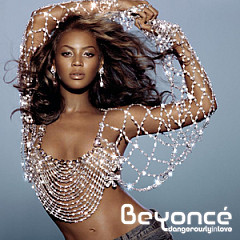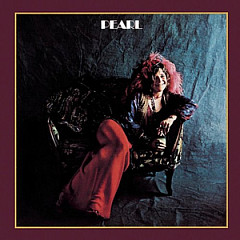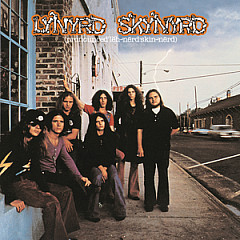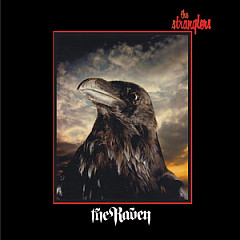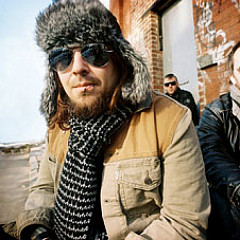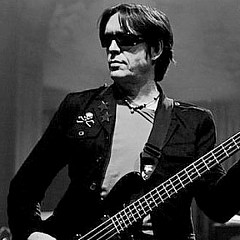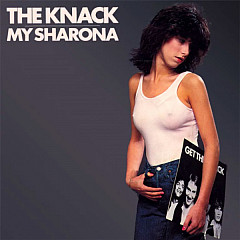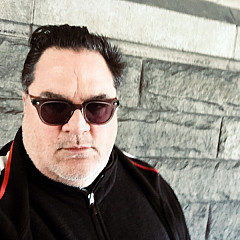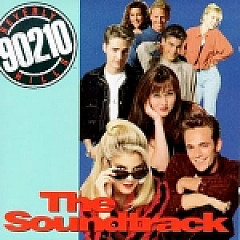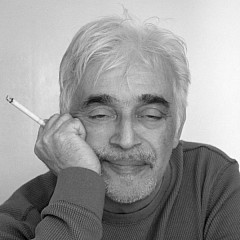This is the first single and title track from English alternative rock singer-songwriter PJ Harvey's eighth studio album. She previewed the song earlier in 2010 on BBC's Andrew Marr Show.
Gordon Brown was on the same program and viewers were taken aback to see Harvey singing, "The West's asleep/Let England Shake" in front of Britain's then Prime Minister. Harvey herself was excited to have the opportunity to express her views. She told Q magazine: "I was thrilled by that. It was one of those moments that I'll never forget. You couldn't have planned it better if you wanted. I was just astonished really. You can only wonder what he might have heard in it. He might have heard nothing at all. But I was really honored to be able to sing that in front of him and have him as an audience."
The song originally incorporated a sample of the Four Lads' 1953 single "
Istanbul (Not Constantinople)" but Harvey later scrapped it. She explained to the
NME this was because, "it actually became something that was drawing the song back rather than letting it become its own living entity, so we got rid of that in the end."
Harvey told Andrew Marr this song is an example of Let England Shake where she "was looking outwards a lot more." She added: "I think a lot of my work has often been about the interior, the emotional, what happens inside oneself. This time I've just been looking out, so it's not only to do with taking a look at England, but taking a look at the world and what's happening in the current day world affairs. But always trying to come from the human point of view because I don't feel qualified to sing from a political standpoint."
This song and around half of the other Let England Shake tracks were recorded on an autoharp. Don't be fooled by the name - an autoharp is not a harp at all, but is basically a chorded zither. Said Harvey to Andrew Marr: "I've got three autoharps and I've had them tuned in slightly different chords, uh, fixtures here, so that they're slightly out of the normal line of what an autoharp would sound like. There's a lot more minor keys, a lot of darker keys."
Harvey's writing for the album was motivated by the ongoing conflicts in the world. The singer told NME that although she's always followed world politics, it was only during the writing of Let England Shake that she felt comfortable enough to take them on lyrically. "I never felt that I had reached the place with my writing that I could talk about these things well, in a language that would work. I think if you're going to talk about giant subject matter, you've got to do it well and I didn't think I had the skill as a writer to do that, up until this point," she said.
-
Harvey released a series of 12 videos directed by Seamus Murphy, each accompanying one song on Let England Shake. The footage for the title track begins with a local Dorset farmer named John Diment reading the song's opening lyrics then continues with shots of an empty British amusement park. "The dark, slightly hysterical lilt of the melody made me think of a fairground run by Alfred Hitchcock on a bender," Murphy told Newsweek."
Let England Shake won the 2011 Mercury Prize, which is an annual award for the best album from the UK and Ireland. In doing so, Harvey became the first artist to win the coveted honour twice after originally taking it home in 2001 for Stories From the City, Stories From the Sea.
The Let England Shake album came top of several media round ups in 2011. When the HMV music chain released its annual poll of polls, working out which records have come up most frequently in the various end of year surveys, Harvey's long player was #1 on the list. Said HMV Music Manager John Hirst: "Musically it's untouchable, combining deceptively simple songwriting with sublime musicianship and sparse production to great effect. It's perhaps also appropriate, in some of the most politically charged times in recent memory, that a protest album should be so recognized as a great work."
This was used in the 2014 UK miniseries The First Georgians: The German Kings Who Made Britain.
Around the time she started working on the album, Harvey listened to Stephen Wyatt's Memorials to the Missing, a radio play about Fabian Ware, a British general who founded the Imperial War Graves Commission. "What touched me the most is that he heard the voices of the dead talking to him and he couldn't rest," Harvey said of Ware to The Guardian. "I'd always be following the news and there'd be so many firsthand accounts from soldiers and civilians in Afghanistan and Iraq. That's what I wanted to be heard – people who had been eyewitnesses through all different periods in history."
Harvey recorded the album at Eype Church, a 19th-century building converted into an art space, on the cliffs of Dorset.



